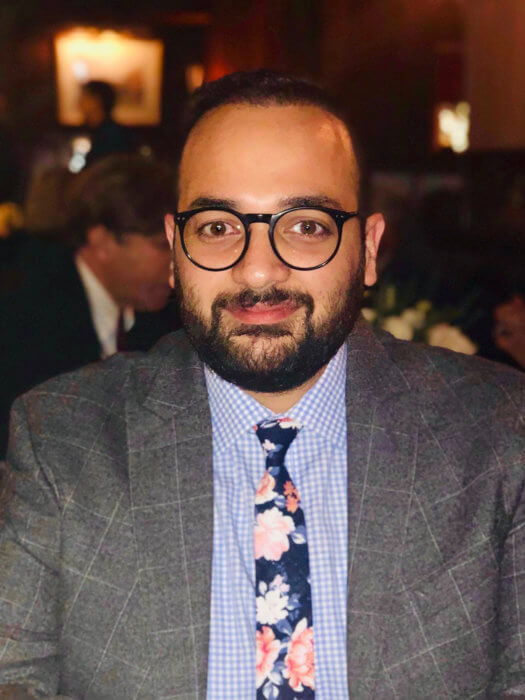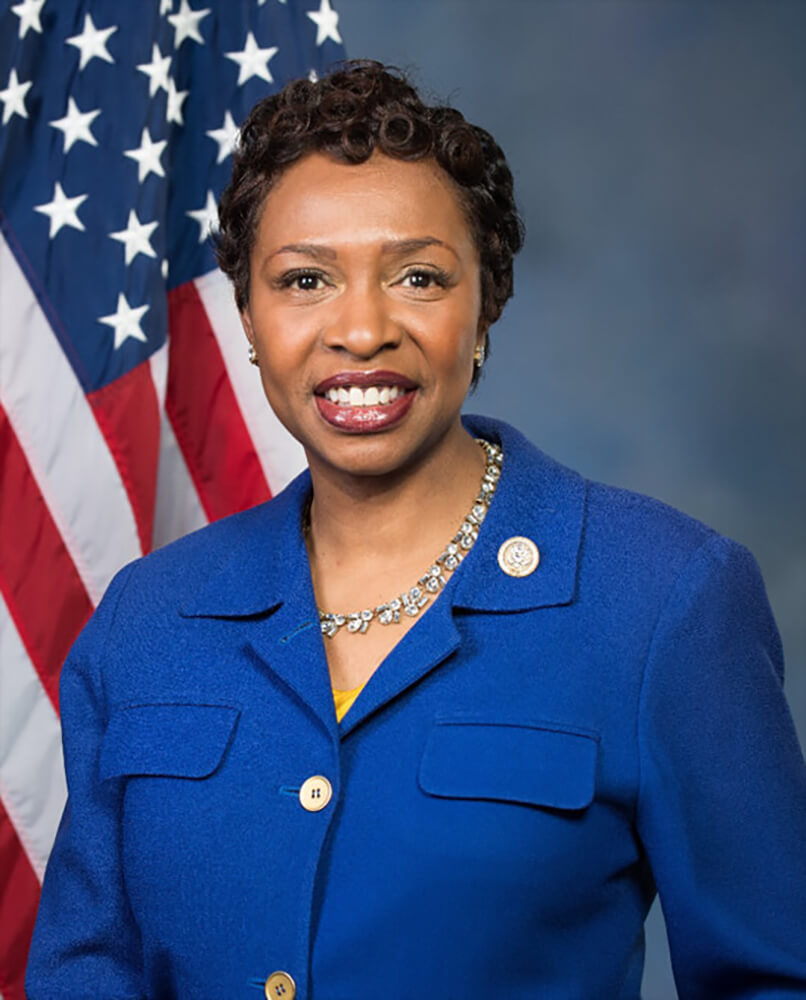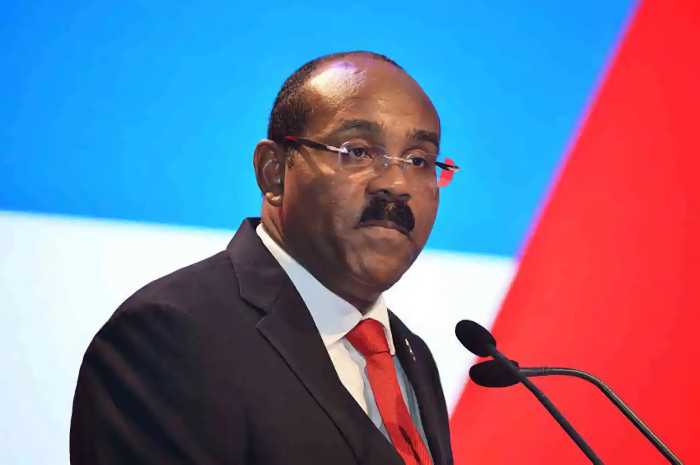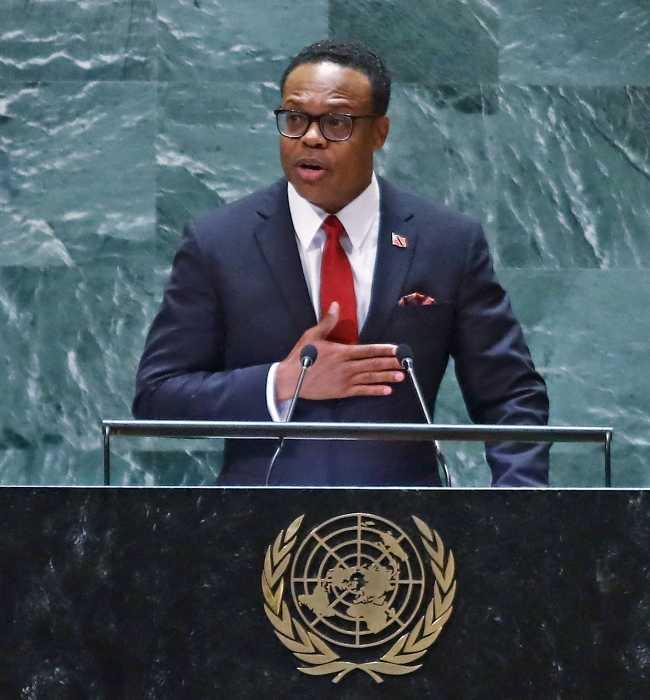Caribbean American Democratic Congresswoman Yvette D. Clarke and the United Nations High Commissioner for Human Rights Volker Türk on Wednesday denounced plans by the Joe Biden administration to limit migrants from the Caribbean and other places.
Late last week, the Biden administration announced that it was limiting migrants from Cuba, Nicaragua, Venezuela and Haiti who enter the US to 30,0000 each month under humanitarian parole, while expelling those who attempt to cross the south western border.
“As the daughter of immigrants and a woman who has dedicated her life towards securing their fair and equitable access to the American dream, I have long pursued reform in a desperately out-of-date immigration system,” Clarke, whose parents hail from Jamaica, told Caribbean Life. “Unfortunately, the recently announced reforms from President Biden and his administration fail to deliver the change migrant communities deserve and have prayed for.
“Moreover, these insufficient solutions have permitted the cruel and oppressive legacy of the Trump-era Title 42 policy to persist,” added the representative for the largely Caribbean 9th Congressional District in Brooklyn. “I am far from alone in finding that tragic fact unacceptable.
“This harmful policy has for years disproportionately impacted Black migrants and created life-threatening conditions for immigrants seeking refuge at our borders,” Clarke continued. “It has denied them due process entitled to them by law and the opportunity provided to them by America.
“The time has come for reform that is centered in equity and moral responsibility, so we may compassionately and safely welcome new Americans to our country – in accordance with this country’s founding principles,” she said. “But let me be clear: our nation owes these individuals and families more than the apologies and empty words they are so tragically accustomed to. They deserve our promise for a better, more accepting, more loving future. They deserve an America to call home. And I intend for them to have both.”
Clarke, therefore, urged President Biden to re-evaluate his administration’s decision on the issue.
At the same time, Türk said the Biden administration’s border policy reforms “risk undermining the basic foundations of international human rights and refugee law.”
Taking aim at the expected rise in so-called “expedited removals” from the United States, Türk also criticized the intention to use the COVID pandemic-related Title 42 public health order even more than today.
The move will permit the “fast-track expulsion to Mexico” of 30,000 Venezuelans, Haitians, Cubans and Nicaraguans each month.
The UN rights chief said that Title 42 has already been used by US immigration officials “2.5 million times at the southern border to expel people to Mexico or their home country, without assessing what risks they faced as a result of being returned.”
The High Commissioner welcomed the extension of the US so-called “humanitarian parole” program to include nationals of Cuba, Haiti and Nicaragua — in addition to Venezuelans — but he insisted that the measure “should not come at the expense of fundamental human rights, including the right to seek asylum and the right to an individual assessment of protection needs.”
His call follows on from the UN refugee agency’s (UNHCR) call last Friday for the US administration to think again, and meet international human rights standards.
Türk stressed that seeking asylum “is a human right, no matter a person’s origin, immigration status, nor how they arrived at an international border.”
“These measures appear to be at variance with the prohibition of collective expulsion and the principle of non-refoulement,” the OHCHR chief said.
He added that limiting humanitarian parole for some, “cannot be a replacement for upholding the rights of all to seek protection of their human rights.”
“Those most in need of asylum, and those in vulnerable situations are unlikely to meet the restrictive requirements to be granted humanitarian parole, including having a financial sponsor in the US,” he noted.
“We hear a great deal of talk about migration crises, but, in reality, it is those migrating who often are the ones truly in crisis,” said the UN high commissioner.
“Rather than vilifying them and stripping them of long-recognized rights, we should be seeking to govern migration humanely and safely with full respect for the human rights of every individual,” he stressed.
The New York Immigration Coalition (NYIC), an umbrella policy and advocacy organization that represents over 200 immigrant and refugee rights groups throughout New York State, has also strongly denounced plans by the Biden administration to limit migrants from the Caribbean.
NYIC said these plans will “cruelly favor” asylum seekers with family connections and financial privilege, demanding the expansion of additional protections for Caribbean and other asylum seekers.

NYIC Executive Director Murad Awawdeh told Caribbean Life that Biden’s plan to expel those who attempt to cross the border is “an attack on the humanitarian values and obligations of the United States.”
“This plan needlessly endangers the lives of those crossing the border in search of basic freedom in our country, and succumbs to the fearmongering espoused by anti-immigrant conservatives,” he said. “President Biden must stop the hypocrisy of his immigration policies, and, instead, proudly stand up for all refugees and asylum seekers, as he has always professed to do.
“As Title 42 continues to be enforced by the Biden administration, cruelly subjecting asylum seekers to violence, this plan is a shameful slap in the face to those seeking safety in the United States,” Awawdeh added.
“Rather than limiting humanitarian parole for just a select few with family connections and financial privilege, the Biden administration must expand additional protections for all asylum seekers, so that our country can fulfill its humanitarian obligations and provide opportunity and freedom for all,” he continued.
In remarks at the White House, Biden said his government would deny migrants from Cuba, Nicaragua, Venezuela and Haiti the opportunity to apply for asylum if they cross the Mexican border without permission between official ports of entry.
Biden said migrants from those countries, among tens of thousands of others who endeavor monthly to cross the border, would be expeditiously returned to Mexico instead.
“Today, I’m announcing that my administration is going to expand the parole program for people not only from Venezuela but from Cuba, Nicaragua and Haiti,” said Biden just a few days before traveling to Mexico City on Sunday for a two-day meeting with Mexican authorities.
“Again, these four countries — Venezuela, Cuba, Nicaragua and Haiti — these four countries account for most of the people now traveling into Mexico to try to start a new life by crossing the border into the United States of America on the southwest border,” he added.
“We anticipate this action is going to substantially reduce the number of people attempting to cross our southwest border without going through a legal process,” continued Biden, announcing that Mexico has agreed to allow the return of up to 30,000 migrants per month “who try, get caught, and get sent back from those four countries who are apprehended while attempting to unlawfully cross the border — the southwest border.
“My message is this: If you’re trying to leave Cuba, Nicaragua, or Haiti, you have — and we — or have agreed to begin a journey to America, do not — do not just show up at the border. Stay where you are and apply legally from there,” he urged. “Starting today, if you don’t apply through the legal process, you will not be eligible for this new parole program.”
The US president said that, in order to be eligible for the parole program, migrants must have a lawful sponsor in the United States and undergo a “rigorous” background check.
“If your application is approved, and you show up at a US airport or when and where directed, you have access,” Biden said. “But if your application is denied, or you attempt to cross into the United States unlawfully, you will not be allowed to enter.
“Look, we should all recognize that as long as America is the land of freedom and opportunity, people are going to try to come here,” he added. “And that’s what many of our ancestors did, and it’s no surprise that it’s happening again today. We can’t stop people from making the journey, but we can require them to come here in an orderly way under US law.”
The White House said in a statement that these measures will expand and expedite legal pathways for orderly migration from Caribbean and other countries, and result in new consequences for those who fail to use those legal pathways.
The White House also said that the new measures draw on the success of the Venezuela initiative, which was launched in October 2022, “and has resulted in a dramatic drop in the number of Venezuelan nationals attempting to enter the United States unlawfully.”
In addition, the Biden administration said it is “surging additional resources to the border and the region”, scaling up its anti-smuggling operations, and expanding coordination and support for border cities and non-governmental organizations.
“Importantly, the actions announced today are being implemented in close partnership with Mexico and governments across the Western Hemisphere,” the statement said.
But the White House noted that, while these steps will help address some of the most acute challenges at the southwest border, “they will not solve all of the problems in an immigration system that has been broken for far too long.
“That can only happen if Republicans in Congress who have spent the past two years talking about border security quit blocking the comprehensive immigration reform and border security measures President Biden proposed on his first day in office, and opposing the billions of dollars in additional funds the president has requested for border security and management,” the White House said.



























